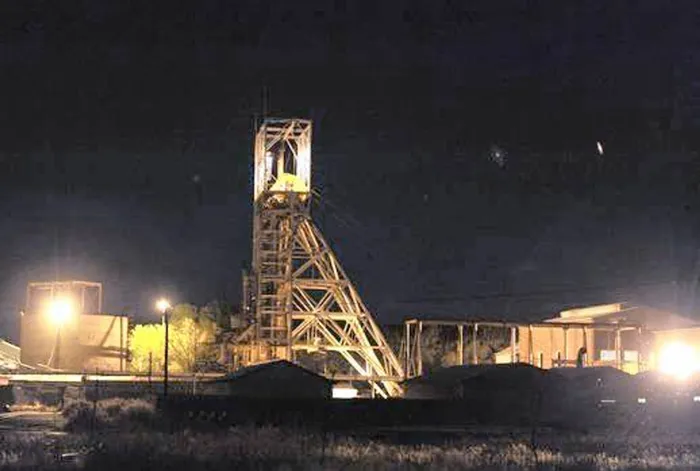NC mines operating without water licences

AT LEAST 17 mines in the Northern Cape are operating without water-usage licences and violating the National Water Act as they consume thousands of litres of water daily without being monitored.
Of the 36 mines in the country that are operating without the water-usage licences, the Northern Cape has the highest number with 17 such mines, followed by KwaZulu-Natal with 14.
The non-compliant mines pose a danger of contaminating water sources and domestic drinking water as government cannot keep tabs on them.
The licence, which costs R114, is a regulatory tool that enables the department of water and sanitation (DWS) to protect water uses.
According to the Department of Water and Sanitation (DWS), only the Department of Mineral Resources (DMR) has a mandate to shut down mines without water licences. However, the DMR did not comment on how many mines it has closed recently for operating with water licences.
For the 2017/18 financial year (April to June), 22 mines were monitored with 15 mines significantly not complying, of which eight required enforcement actions.
The DWS also revealed that the Northern Cape leads with 17 such mines.
The National Water Act (NWA) states that offenders are liable for fines, including imprisonment.
The mines in the Northern Cape that are not compliant include Aspai 1131 (mine operational; investigated and a notice was issued), C7M Diggers mine (mine operational; investigated and notice issued), Fourteen Streams (operations ceased; mine investigated and a notice was issued), G&A Delwery (operations ceased; mine investigated and a notice issued), Graven Mining (operations ceased; mine investigated and notice issued), Helpebietjie Mine (operations ceased; mine investigated and no enforcement action was required); Kabokweni (mine operational; investigated and a notice issued), Kareepan (operations ceased; mine investigated and no enforcement action was required), Kasimire Trading 82 (operations ceased; mine investigated and notice issued), Monster Mob (operations ceased: mine investigated and a notice issued), Morokwa Manganewe (operations ceased; mine investigated and notice issued), One Turn Trading (mine operational; investigated and notice issued and directive issued), Over Rocks Trading (operations ceased; mine investigated and no enforcement action required), Pensfontein Mine (operations ceased; mine investigated and no enforcement action required), PJJ Botha (operational; mine investigated and enforcement action is still under way); Spaktel (operations ceased; mine investigated and notice issued) and Windsorton Mine (operations ceased; mine investigated and notice issued).
Meanwhile, the civil rights organisation AfriForum is attempting to force Environmental Affairs Minister Edna Molewa to act.
The organisation recently launched the Promotion of Access to Information Act (PAIA) against the department in a bid to understand the source of the problem which threatens the quality of water in mining towns.
NWA makes it compulsory for water users in industries such as mining, agriculture and power generation to register for licences before they start operations. However, it is believed that capacity limitations within the department has hindered processing of such licences on time.
Industries use 90 percent of the country’s water.
Concerning
“It is concerning that 36 mines are not compliant with the NWA and these can cause lots of environmental problems as we know that South Africa is a water-scarce country. It is unacceptable that the DWS is allowing mines to operate without valid water licences for years on end. When mines disregard water Acts, it has a negative influence on resources and that is something that South Africa cannot afford,” said Chris Boshoff, AfriForum’s co-ordinator for Environmental Affairs.
Boshoff has since written to Molewa demanding to know which steps her department has taken to stop unlicensed mines from operating and what mechanism applied to monitor complying mines.
In its 2014 water and sanitation report, the SA Human Rights Commission called for the closure of non-complying mines, while also accusing mines of polluting water resources and wasting water.
Marthan Theart, knowledge and information co-ordinator at the Centre for Environmental Rights, said that although the figures of unlicensed mines had significantly dropped from 150 recorded in 2015 and 69 in 2011, it was concerning that they were still allowed to operate.
“The problem is that with them not being regulated they can consume water as they please because there is not proof of how much water they use. There is also a question of pollution because these companies don’t have monitoring channels in place to guard against pollution,” said Theart.
He said blockages in processing of licences was caused by staff shortages at the DWS.
“They have 35 staff members for compliance, monitoring and enforcement in the entire country, which is a big problem,” said Theart.
In 2010 the DWS and DMR made an agreement to implement parallel water use licensing and mineral authorisation. This was aimed at ensuring that mining does not commence before a water licence is issued.
DWS spokesperson Sputnik Ratau said his department uses different enforcement tools such as administrative, criminal and civil action to rectify contraventions.
“Further note that criminal and civil action is dependent on the work of other law enforcement agencies and that lengthens the process. DWS does not have mandate to close down any mining operations. This responsibility falls under DMR. However, DWS is able to stop any water uses within such operations by means of the above-mentioned enforcement tools,” said Ratau.
He further said his department was engaging with both national prosecuting through Justice College and SAPS officials to capacitate them on water-related offences to ensure effective prosecution.